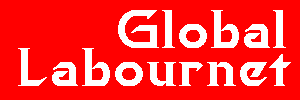


http://www.labournet.org.uk/lnforum/
Please make sure to change your links and bookmarks.
Important: Do not attempt to post answers to messages from before 23.11.97. This will attempt to send your text to the old server.
18 November 1997
No one is required to use the message recovery feature. It requires the consent of both parties to be activated. And the feature is not even present in the personal privacy version or the freeware version, it's only in the business version. Just don't buy the business version if you don't want the feature. And if you do buy the business version, you don't have to use the feature. It's all up to you, the customer.
As far as I know, no one else has implemented this kind of feature in a way that requires consent of both communicating parties. Our customers would not buy the product without this feature, so we would not make any revenue at all. We have to sell to corporate customers, because they pay money for the product. That means we have to meet their demands or we go out of business. We get almost no revenue from noncorporate users, because we give away the freeware. If more people paid for the personal version, maybe we could live on that revenue. But they don't, so we have to sell what our corporate customers demand. Maybe you could start a grassroots movement to have all the freeware users decide to pay for their freeware, then we could afford to stop selling to corporate customers. In the meantime, these corporate customers are paying the salaries of our engineers so they can continue to produce freeware versions that don't have these features.
I hope that addresses the issues that you raised.
Sincerely,
Philip Zimmermann
31 October 1997
The blocking and monitoring software increasingly being adopted by corporations is ostensibly aimed at "increasing productivity" by blocking out "pornographic" websites. According to recent hysterical headlines in the industry press, one in four desktop computers connected to the net have been used to access pornographic sites.
But let there me no confusion about the technology. There is no way to effectively block access to pornography only. Site managers will determine what is to be blocked using keywords. Those words could include "sex" -- but they could also include "union." It's the exact same technology.
Big Brother in action
I saw a demonstration today of one of the most powerful of these tools, Session Wall. With a user-friendly interface, at low cost, offering a kind of firewall protection too, Session Wall will allow employees to read (unencrypted) employee email -- incoming and outgoing, and even to view the websites on the employees' screen in real time, without the employee knowing. The interface to enter key words to be blocked is simple to use, and with no difficulty we could insert words like "labor" or "trade union".
In the context of a continuing anti-labour offensive around the world, one in which employers and their agents have not hesitated to use physical violence against trade union organizers in many countries, what will stop employers from using this powerful new technology to block effective trade union use of computer mediated communications?
The answer: only the power of the labour movement.
For the report on ZDNet, click here.
24 October 1997
After all, I've been touting the advantages of using encrypted communications in the trade union movement for some time now -- particularly in messages to the newly-formed Labour Webmasters' Forum.
I keep telling people in our movement that we have to begin learning about security -- both for our email and for our websites. And PGP -- Pretty Good Privacy -- is the way to go.
According to journalist Robert Lemos, "some cryptography experts are not happy about PGP's turn to the dark side of digital privacy." Among these are Bruce Schneier, author of the book Applied Cryptography. Schneier is quoted as saying "This is worse than I thought . . . They have not only designed in key escrow, but they have made it hard to get around."
Ironically, Schneier's book is listed by PGP founder Phil Zimmermann as the very first title in his "Recommended Readings" section in the PGP manual. Zimmermann called Schneier's book "a watershed work on the subject."
The new PGP product "weakens workers' privacy," writes Lemos. He quotes Susan Scott, executive director of Internet privacy watchgroup TRUSTe, who says that worker's privacy has been under attack for some time. She told Lemos: "The lines are being drawn in the courts, and more and more, company's [sic] are gaining power to monitor employees," said Scott. "Workers can't just say, 'no, I don't want to be monitored' -- it would mean their jobs."
The same day that FIET passed this resolution, PGP released the Business Security Suite.
The importance of secure email for workers to communicate with other workers and their institutions cannot be overstated. It is part of the right to organize free and independent trade unions.
I guess that Zimmermann and his company have forgotten this message, which was after all written back in 1994 when Zimmermann was kind of a folk hero, under investigation by the US government for exporting encryption software. Today, PGP is trying to break into the corporate market and maybe shed its image as being on the side of the little guy.
When corporations come along and say, OK, you can use our email network for your communications -- and don't worry, you can even use PGP to encrypt your messages, watch out. They may be using the Business Security Suite.
What you can do
|
| Member of the Internet Link Exchange |